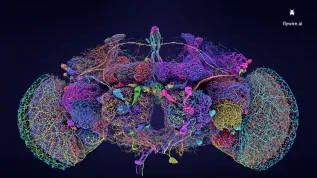
Cold Flow Turbine Test Facility, one of the largest of its kind in the world, was opened on Tuesday in Zielonka near Warsaw. Next year it will test new generation engine turbine for the new version of Boeing 777.
It is a joint project of private and public enterprises and universities - Polonia Aero, Aero Avio, Military Aviation Works No. 4, Military University of Technology and Warsaw University of Technology.
"This is a huge step for the Polish economy, for the cooperation between science and industry" - said the European Commissioner for Internal Market and Services, former Minister of Infrastructure and Development Elżbieta Bieńkowska. She said that the investment was an example of good spending of money allocated under the EU\'s regional policy. "The European economy needs to become more innovative, it must modernize, it must be based on industry, science and services. They can not be separated" - she said.
"This project is a great opportunity for the aviation industry and an excellent example of cooperation between private companies and universities. We have 25 engineers. We will test turbine and prototypes, students will gain practical knowledge in one of the most innovative R&D centres in the world "- said Giacomo Vessia, president of Polonia Aero.
He emphasised the support of the European and national authorities and the commitment of the European Commission, National centre for Research & Development, Ministry of Infrastructure and Development, the Ministry of Economy and Ministry of Defence. He added that the value of the investment is approx. 230 million zlotys (55 million euros), of which 80 percent came from EU and national funds.
Military University of Technology vice-rector for development Prof. Mariusz Figurski emphasised the unique, in his opinion, fact that the laboratory is open and will benefit students. "This laboratory is the most important one, but laboratories at Warsaw University of Technology and Military University of Technology have also been established, this network forms a whole" - he said.
Deputy Minister of Infrastructure Iwona Wendel called the centre a calling card of the Operational Programme Innovative Economy. "The model, which we are discussing, has come true: we have a scientific and industrial consortium, which consists of two business and two scientific units" - she said.
"It was not the only project that went through our institution, but for many reasons it was special. It was and is a way to show that in Poland public and private spheres can effectively cooperate. Such cooperation, however, is quite rare commodity in Poland" - said director of the National Centre for Research and Development Krzysztof Kurzydłowski.
President of Avio Aero Ricardo Procacci pointed out that as part of the "Innolot" program the resort under will carry out industrial research and development in the aviation industry. The plans include tests associated with increasing the efficiency of new General Electric GE9X aircraft engines - the objective is to lower fuel consumption and emissions - for Boeing 777, and the GEnx engine turbines for 747-8 and 787.
The task of the Cold Flow Turbine Test Facility is working on the optimisation of turbine blade profiles to reduce fuel consumption, emissions and noise emitted by aircraft engines. Equipment in the facility allows to test turbines in conditions similar to those in flight, but at a lower temperature than in a real flight. Hence the name of the method - "cold flow". The intake air is compressed and heated to a maximum 375 degrees Celsius, and then passed through the tested turbine at a rate of 80 kg/s.
The lab where tests will be carried out several times a year, will need huge amounts of energy during tests. Therefore, it was necessary to lay an underground 110 kV line.
The laboratory, the construction of which started in mid-2013, was to begin operating at the end of 2014. The total investment amounted to 230 million zlotys (55 million euros), of which more than 160 million zlotys came from EU funds, and 28.4 million zlotys from the state budget. The facility was built at the Military Aviation Works No. 4, specializing in the repair and maintenance of turbine engines.
PAP - Science and Scholarship in Poland
brw/ gma/
tr. RL













